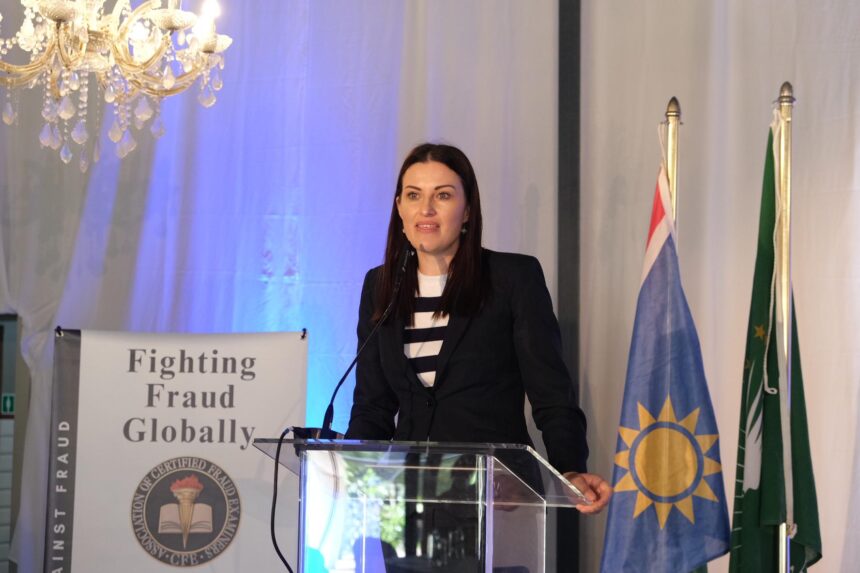As Namibia strives to achieve its developmental goals, it is imperative that the country tackles the scourge of fraud and ultimately combat its insidious threat, says the Association of Certified Fraud Examiners’ (ACFE) president Lehana Nel.
The ACFE, a global organisation, recently established a chapter in Namibia, signalling a new era in the fight against the pervasive crime.
“The ACFE, with a strong reputation for setting standards in anti-fraud training and certification, aims to empower professionals in Namibia to combat this growing threat,” she said during the year-end function of the association at Droombos last week.
Nel noted: “Together, we can drive meaningful change and create resilience and systems that serve as a foundation for growth.”
She said Namibia only joined the association in February 2024 but has already received the ACFE SA Africa Chapter of the Year award for 2024.
“Today, we are one of the leaders in the industry, doesn’t matter if we are only three million people, we make the change. We keep to our word, and do what is needed to address issues around fraud,” she stated.
A recent ACFE report highlighted the global prevalence of occupational fraud, revealing organisations lose an estimated 5% of their annual revenue to fraud.
“Fraud schemes typically last 12-18 months before detection, with corruption identified as one of the most common forms of misconduct. The report further emphasises that proactive measures — such as fraud training and collaboration among professionals — are critical in mitigating these risks,” stated Nel.
The vice president of ACFE Namibia, Godfrey Ihuhua, highlighted the importance of a proactive approach.
“Namibia has been lauded globally for its generally exemplary approach to governance. However, we have been found wanting in respect to several items in which we can improve as a country. This was seen through the recent FATF grey listing in February this year,” he said.
Former ombudsman John Walters was irked by some institutions that don’t take accountability, transparency and good governance seriously during their operations.
“Many Namibians came across the information about the Ministry of Defence purchasing vehicle part/s through Job Amupanda, and they tried to justify their actions by trying to make it look like Job is a liar. Had the Ministry of Defence provided this information beforehand, all of this could have been avoided,” referenced Walters on transparency and good governance.
He highlighted the importance of information, recalling threats and going to court to get information, adding this is what fuels corruption, fraud and other illegal schemes at institutions in Namibia.
“Was that necessary? Because the information is the currency of transparency. The right to access information and freedom of information is the touchstone of all freedoms as it embodies the right to know, make free choices, and live an autonomous life,” the law expert said.
He added that public officials do not hold information for themselves, but they are the custodians for the public good.
To avoid issues such as fraud, corruption, and other unwarranted activities, Walters suggested that ministries like that of fisheries should frequently release the names of the fishing quota awards, and agriculture should release the names of beneficiaries of the land resettlement project.
“The Ministry of Mines and Energy – all information regarding the petroleum, gas and hydrogen projects must be properly communicated. The Ministry of Finance has to ensure all State-owned enterprises submit their current annual reports with the audited financial statements for submissions in the National Assembly – which is a legal requirement,” he added.


